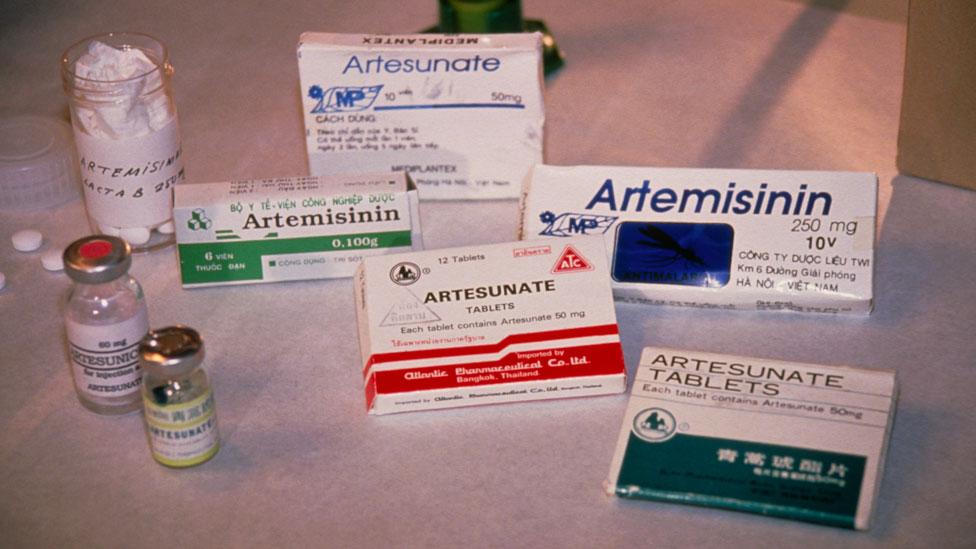Source: Thailand Medical News Jan 05, 2020 6 years, 1 month, 2 days, 15 hours, 25 minutes ago
Every year more than 200 million people are affected by
Malaria worldwide, and resistance to
antimalarial treatments is constantly increasing. This infectious disease is caused by
Plasmodium parasites that are capable of adapting to varied environments. During the parasite's life cycle, it lives in the salivary glands of the mosquito vector before infecting the liver and then the blood of the human host.

Dr Flore Nardella, a contract researcher in the Biology of Host-Parasite Interactions laboratory (Institut Pasteur/CNRS/Inserm) explained to
Thailand Medical News, "At each stage in the cycle, epigenetic mechanisms such as histone or DNA modifications regulate the expression of the parasite's genes, enabling the specific expression of some genes in the cell at a given time so that the parasite can adapt to its environment.”
Her laboratory in 2019 led by CNRS scientist Dr Artur Scherf, demonstrated the importance of epigenetic DNA modifications for the parasite's life cycle. The Institut Pasteur's Epigenetic Chemical Biology laboratory has unparalleled expertise in the field of DNA methyltransferase inhibitors. So it was logical for the two teams to work together to identify molecules capable of inhibiting DNA methylation and killing parasites. "Dr Artur's team had a thorough knowledge of the epigenetic mechanisms in
malaria, and we had an original chemical library with inhibitors that had already been optimized for these modifications," explains Dr Paola B. Arimondo, a chemist, CNRS Director of Research and Head of the Epigenetic Chemical Biology Unit (Institut Pasteur/CNRS).
The medical researchers decided to work on the
Plasmodium falciparum parasite, especially strains of artemisinin -resistant parasites provided by the Institut Pasteur du Cambodge. In a first series of in vitro experiments, the
Plasmodium falciparum parasites were allowed to interact with human red blood cells so that they could infect and develop in them. More than 70 methylation-inhibiting molecules were then tested to assess their efficacy and their specificity in relation with the parasites.
"As soon as we tested the first molecules, we saw significant activity, comparable with drugs such as chloroquine," recalls Dr Flore Nardella. "That's very rare when testing a new library of molecules." "The inhibitor molecules were very effective, and some of them killed the
Plasmodium falciparum parasites in the blood in just 6 hours," adds Dr Paola B. Arimondo.
The researchers then continued their research. In a second series of experiments, the most effective molecules were tested on resistant isolates and, once again, the results were conclusive: the molecules effectively killed the blood parasites. "This study shows, for the first time, that parasites in the blood, including artemisinin-resistant strains, can be killed rapidly by targeting DNA methylation," concludes Dr Paola B. Arimondo. "Given the treatment failure observed in South-East Asia in particular, it is important to find new ther
apeutic targets. Methylation could pave the way for new drugs that, combined with artemisinin, could eliminate resistant parasites," adds Dr Flore Nardella.
In the third stage of their work, the scientific team tested the inhibitors in vivo in mice infected with the parasite
Plasmodium berghei. Once again, the approach proved successful: the treatment killed the blood parasites and the mice survived the cerebral
malaria infection.
The subsequent steps for the two research teams are to continue optimizing the selectivity and efficacy of the most promising molecules (this is crucial if the molecules are to be used in humans) and to identify molecules that may act on other development stages of the parasites responsible for transmission.
Reference: Flore Nardella, Ludovic Halby, Elie Hammam, Diane Erdmann, Véronique Cadet-Daniel, Roger Peronet, Didier Ménard, Benoit Witkowski, Salah Mecheri, Artur Scherf, Paola B. Arimondo. DNA Methylation Bisubstrate Inhibitors Are Fast-Acting Drugs Active against Artemisinin-Resistant Plasmodium falciparum Parasites. ACS Central Science, 2019; DOI: 10.1021/acscentsci.9b00874
